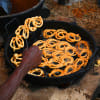Amidst the practice of self-discipline and heartfelt prayers during Ramadan, families across our nation find themselves navigating the balance between spiritual devotion and financial responsibility. This delicate equilibrium becomes particularly challenging given the additional strain brought about by the need for special iftar items, charity, and the purchase of gifts.
Navigating these precarious financial waters may seem daunting, yet with careful expenditure and thoughtful strategies, even saving during this holy month is totally doable. With that said, here are some practical ways on how you can potentially save during this Ramadan.
To begin your Ramadan journey on an economical note, prioritise simplicity in your iftar and sehri arrangements. You should settle for breaking your fast at home, surrounded by the aroma of home-cooked meals and the warm company of your family and loved ones.
Steer clear of hotels and restaurants whenever possible, considering even the modest iftar or sehri platters typically sets you back around Tk 500. Buffet options should be avoided entirely, given that Ramadan-themed buffets can be anywhere between Tk 2,500 to Tk 12,000 per person.
Instead, by embracing homemade items cooked from your own groceries, you can relish a satisfying meal. Consider this; if you had planned to dine out once a week for iftar or sehri in this Ramadan, halving that frequency could translate to an instant Tk 1,000 saving. Completely avoiding restaurant outings would double that amount instantly! And if you can give up the temptation for a buffet, my friend, you just saved a huge chunk of money.
And when saving is the priority, every penny matters. Therefore, this month, consider avoiding supermarkets. While these establishments offer unmatched convenience, their prices often surpass those of local vendors. Although negotiating with local sellers may appear irritating and tiresome, the potential savings make it worthwhile. For instance, a kilogram of broiler chicken could cost around Tk 350 at supermarkets, whereas local shops typically sell it for Tk 230, resulting in a price reduction of BDT 100 per kilogramme.
Such price discrepancy extends to other protein sources like fish, where fluctuations are common, yet local vendors consistently offer more competitive prices. The trend continues with staples such as rice and vegetables, where discounts ranging from Tk 5 to Tk 10 per kilogramme are commonplace at local markets.
Another related strategy is to purchase in bulk. Although saving nominal amounts like Tk 5 per kilogramme may appear insignificant initially, the cumulative impact becomes apparent when purchasing in larger quantities. By remaining vigilant about prices, exploring various shops, and haggling whenever possible, you can save your next Tk 1,000 or more from groceries — a feat that requires effort but is certainly worth the effort.
If you lack a personal vehicle, prioritise the use of public transportation whenever possible. During Ramadan, when the fatigue of fasting sets in, the temptation to rely on ride-sharing services is understandable. However, this convenience often comes at a steep cost.
For instance, a bus journey from Sayedabad to Mirpur-1 amounts to Tk 40, whereas a ride-sharing motorcycle trip could cost you around Tk 350 to Tk 400, depending on current demand on the road. This significant price difference, almost ten times the bus fare, highlights the importance of refraining from such services for an economic lifestyle and potentially saving your next couple of thousand takas in the process.
An additional strategy worth considering is substituting costly products wherever possible, and being creative about it. Take, for instance, our beloved iftar rituals, which are often incomplete without the presence of fresh fruits. Here, you can significantly trim your expenses.
Instead of opting for costly imports, like apples priced at Tk 380 per kilogramme, consider the local alternative of guava, available for approximately Tk 80 per kilogramme. Similarly, swap out expensive options like oranges and malta in favour of pomelo, which offers comparable taste at less than one-third of the price.
In summary, with careful planning and wise choices, saving this Ramadan is feasible, even in these difficult times. While undoubtedly challenging, embracing frugality is seldom effortless. So, let's seize this opportunity to redirect these savings towards charity and gifts for loved ones, ensuring a more meaningful celebration of Eid-ul-Fitr this year!








Comments